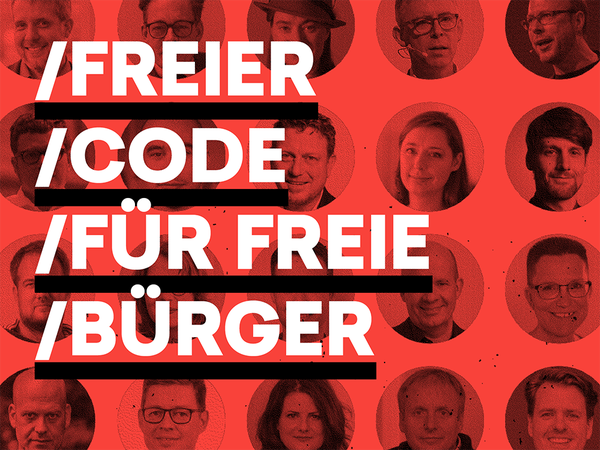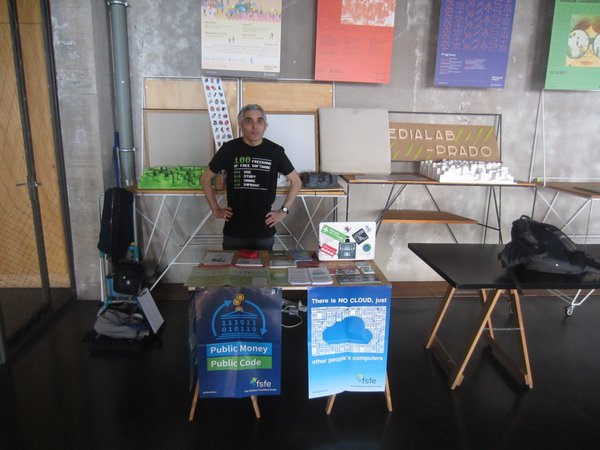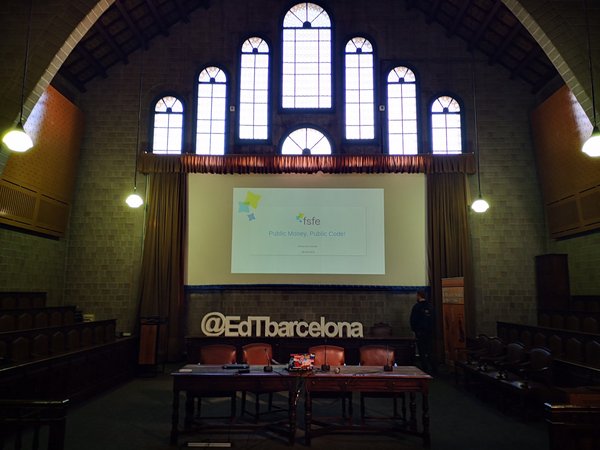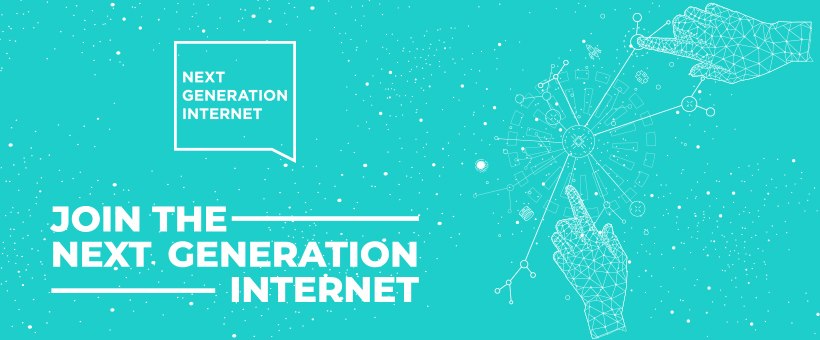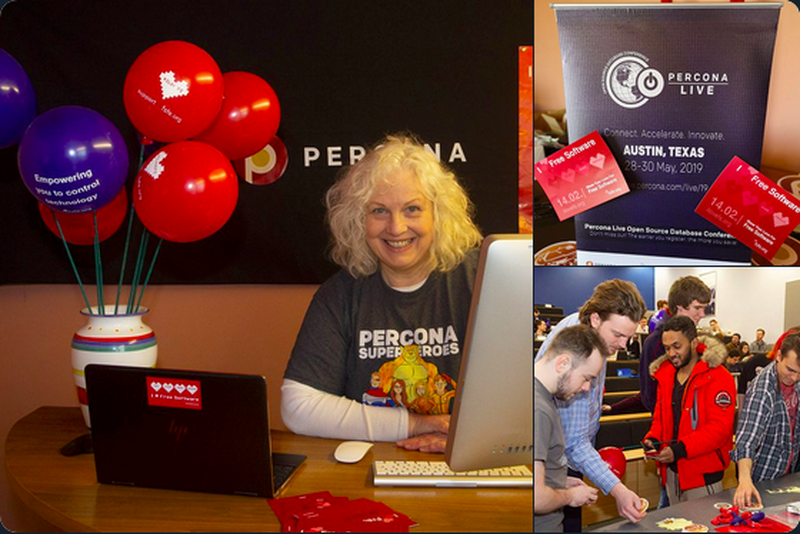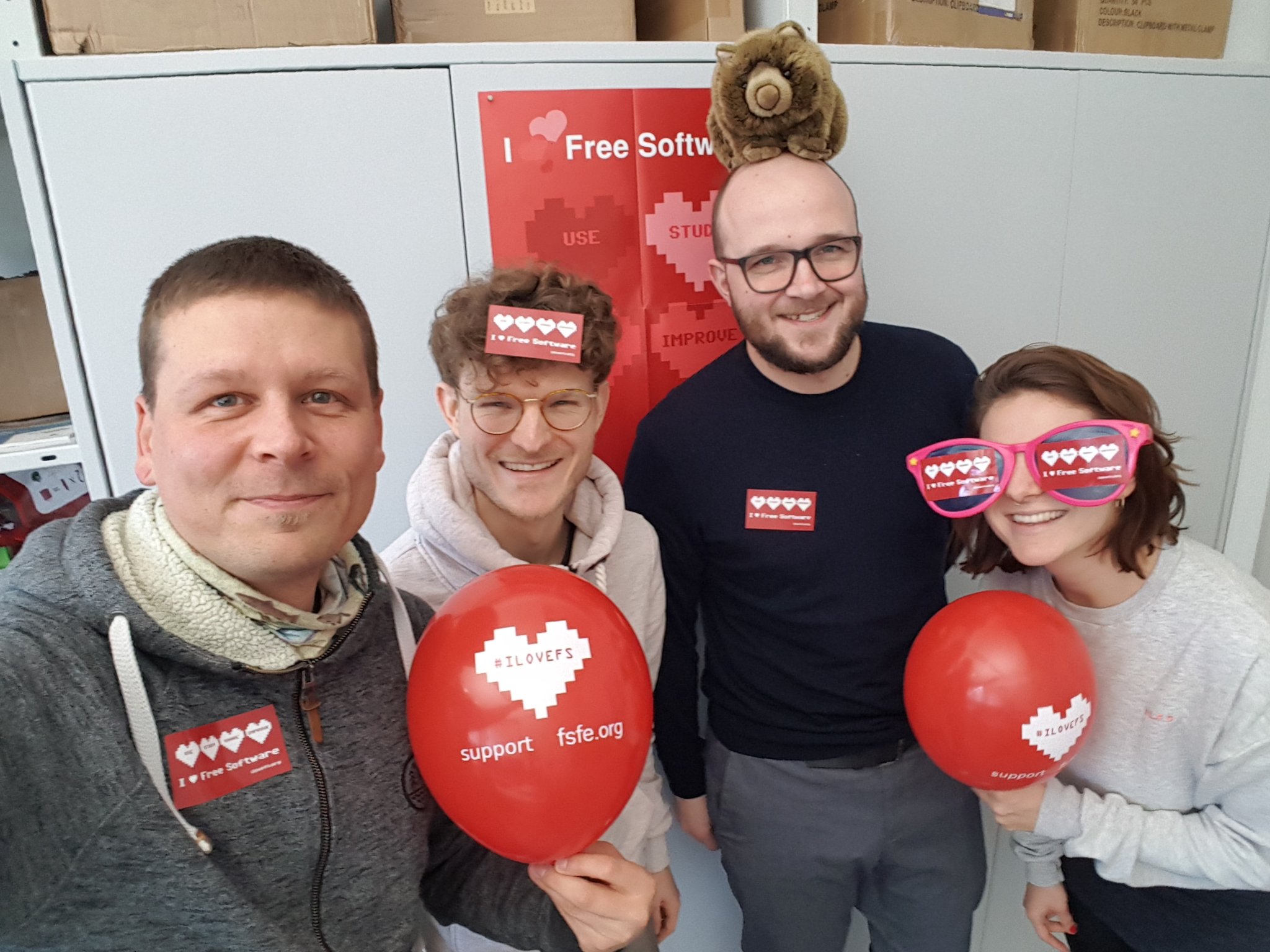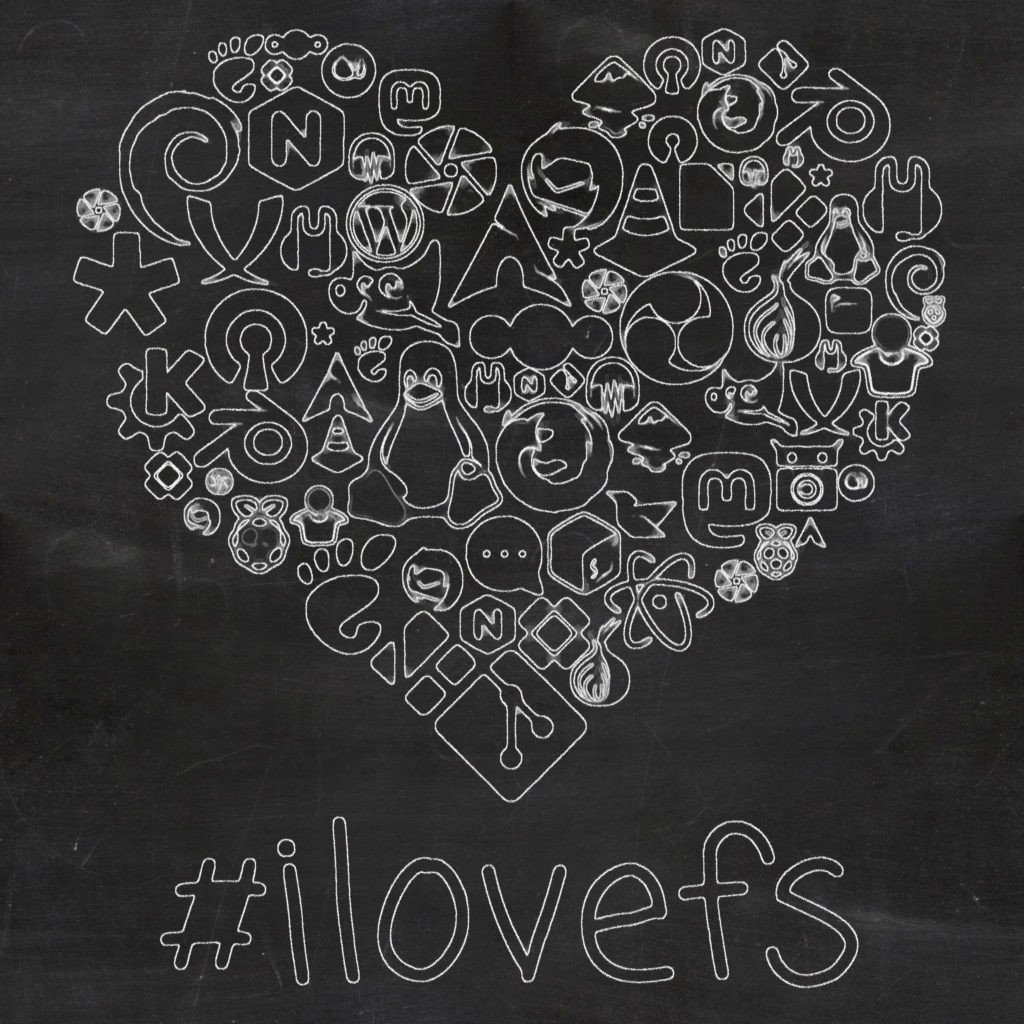How the Parliament of Asturias decided to sign the open letter demanding "Public Money? Public Code!" - an interview with Iyán Méndez Veiga
"The Parliament of Asturias commits itself to the international "Public Money, Public Code" campaign" - this is a quote from the first demand in a recent proposal brought by the Parliament of Asturias to its government. It is also the happy end of continuous lobbying efforts from Oviedo's local hackerspace "Pica Pica Hacklab", using the FSFE's campaign material mixed with their self-developed brand of social hacking. Meanwhile, the Parliament of Asturias backed up its words with deeds and officially signed the open letter of our "Public Money? Public Code!" campaign - being the very first Parliament to do so. To shed light on this successful story and inspire local groups around the world, we conducted an interview with Iyán Méndez Veiga, member of Pica Pica Hacklab.
FSFE: You are a member of Pica Pica HackLab in Oviedo, Asturias. A hackerspace that refers to itself as "a collective of Eco Hackers". Please introduce yourself and tell us a little bit what Pica Pica HackLab is and what you are doing?
Iyán Méndez Veiga: I am doing my masters-study in physics at the University of Ulm, Germany, but I am initially from Oviedo where I joined Pica Pica Hacklab five years ago. Pica Pica is a small organisation and we are focussing on spreading the word about the use and benefits of Free Software in our region. The whole project started ten years ago when the original members of Pica Pica noticed the lack of activities related to Free Software in our region and so they decided to do something. Just some weeks later, Pica Pica already organised its first workshop about Free Software.
Calling ourselves "eco hackers" is to emphasise that we also do some activities that are not usually related to hacker spaces or hacker labs. For example we are fighting against planned obsolescence. On our website you can find tutorials how to use your toner till its end and not until the printer claims you have to change it. Also we have workshops about technology and birds, using Free Software to live-record the sound of birds and later use the audio to identify them. Later this year we will also try to publish something similar about bats because we have been using Free Software to record bat sounds and recognise them. So Pica Pica mixes technology and environmental studies, and we like that mix.
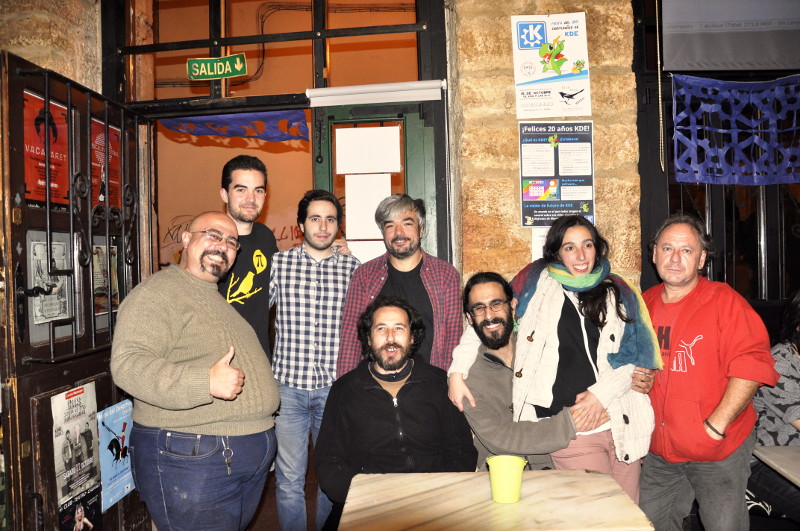
Some of the Pica Pica Hacklab members at a regular meetup in 2016. (Picture by Iyán Méndez Veiga,
CC-BY 4.0)
Currently Pica Pica has six active members. That seem like a small group, but a lot of people usually come to our introduction workshops. Also there is a lot of fluctuation. Meaning some people come, they are active for a while but then they go again. In the past, for example, a medical student preparing the MIR exam in Oviedo joined us. He was very interested in Free Software and he even gave a talk about hacking some medical devices. We always have our door open.
Do you think there is a good Free Software scene or culture in Asturias or in Oviedo in particular? I mean a hackerspace normally does not grow from nowhere.
I would say it is a not a big thing in Asturias. But we are trying to spread it more and more. So, although most communication happens via email, we try to meet as often as we can. Then, once a year, we have this big workshop about the introduction to Free Software which is split in two sessions. The first part is about the idea behind the Free Software movement and the second part is hands-on installing Free Software. But we do a lot of other activities, as well. For example, when it was the 30th birthday of FSF, we organised a party and we also did it with the 20th birthday of KDE. And we hosted the first FLISOL event in Europe in our city back in 2010 and we have been doing so for the last 10 years.
Thank you very much for this introduction, now let's talk about your latest success: you convinced the Asturian parliament to write a proposal to the government to support the FSFE's "Public Money? Public Code!" campaign. How did you first become aware of the campaign?
Well, we received an email from FSFE which came just in time because we were already working on a similar proposal to our government some years before the "Public Money? Public Code!" campaign. The first time we tried to convince the Parliament was in 2015, during the previous regional elections. We wrote a similar document back then and when we saw the European "Public Money? Public Code!" campaign coming up, we used the moment to merge the two initiatives and give it a second try. Then, after some preparation, we started to contact the politicians of the Parliament in Asturias in March 2018. That means, it took us almost one year of work until they finally voted "Yes" which happened in February 2019.
The proposal of the Parliament has three main items and the very first one is that the Parliament of Asturias supports the international "Public Money? Public Code!" initiative. So I would say, indeed, that the campaign's material served us a very good basis to get the Parliament's proposal.
The proposal of the Parliament has three main items and the very first one is that the Parliament of Asturias supports the international "Public Money? Public Code!" initiative.
Why did you choose the Parliament and not the government or a ministry to influence with your agenda?
Some years ago Pica Pica HackLab tried to contact the President of Asturias, Javier Fernandez. Back then, in 2013, they created a committee of experts to give technological advise after the financial crisis. Alexis, first member of Pica Pica, wrote a letter to highlight that the committee was highly represented by Microsoft Ibérica (María Garaña, former president of Microsoft Ibérica was part of that comittee) and that this was probably not the best choice in the interest of our region. Obviously, there was a conflict of interest between what Asturias needed and wanted and what Microsoft wanted. So we wrote this letter to the President of Asturias and we were totally ignored. And we realised that it does not work very well to directly communicate with the government. In our experience, it is easier to contact the political parties that have representation in the parliament. And that is what we did this time.
Actually everything was going better when we had these face-to-face meetings. So as soon as we realised this, we started to do some kind of "social hacking"
How does this work in practice? Does it mean a lot of individual meetings with individual members from different parties or is there something like a public hour per week where you can talk with them?
It was a long process because when you start you do not yet have any good ways of contact like their phone numbers. So, everything was done via email at first. And then, as soon as we got some dialogue started, we sped things up and asked for meetings. Actually everything was going better when we had these face-to-face meetings. So, as soon as we realised this, we started doing some kind of "social hacking": the problem is that you cannot go to the Parliament of Asturias without an invitation. But once you have an invitation for a meeting with some of the politicians via email and you are inside the building, you can move freely. So we used the chance to knock on doors, office by office of politicians who did not yet reply or invite us, and this was a great chance to speak with these politicians directly and face-to-face even with a pending invitation.
Do you have a rough estimation of how many times you were going to the parliament?
I do not know exactly the number of meetings but I would say there were two important meetings. One with the first proposal with two or three political parties that were already going to vote yes. They agreed with the text of the initiative but the rest was not so sure. In these meetings we were actually trying to emphasise different aspects of "Public Money? Public Code!" depending on the direction the policial party is more aligned with. The idea behind this was that they are totally different parties but we want them all to vote in favour of the same thing. So we emphasised different benefits of Free Software to the different parties. For example the PP (conservative traditional party) was more interested in tax savings. But with the PSOE (labour party), which is also the governing party now, we tried to highlight the sharing aspect, so you can collaborate with other regions. If you develop something in one region, then you can share it later with the other regions. You do not have to invest again and again or to reinvent the wheel. Then we theorised that in the last elections it was a new party in our region that is more focused on transparency. We tried to convince them by highlighting that Free Software is the only kind of software that you can audit and that argument worked really well.
The idea behind was that they are totally different parties but we want them all to vote the same thing. So we tried to emphasise different benefits of Free Software to the different parties.
That means depending on the party's own directions and programs, you will use their own arguments for your causes?
Yes. The FSFE's campaign mentions four main advantages of using Free Software within public administrations. We used all four of them but with each party we emphasised one more than the others. That worked really well to convince them.
Did you also directly use the campaign's material like showing them the webpage or the video? Was the material useful for your purposes?
Yes. Actually the campaign's website is directly mentioned in the final proposal, in the very first item. So the web page was a big help for us. About the video I do not exactly know if it was shown but I would have done it because it is really effective.
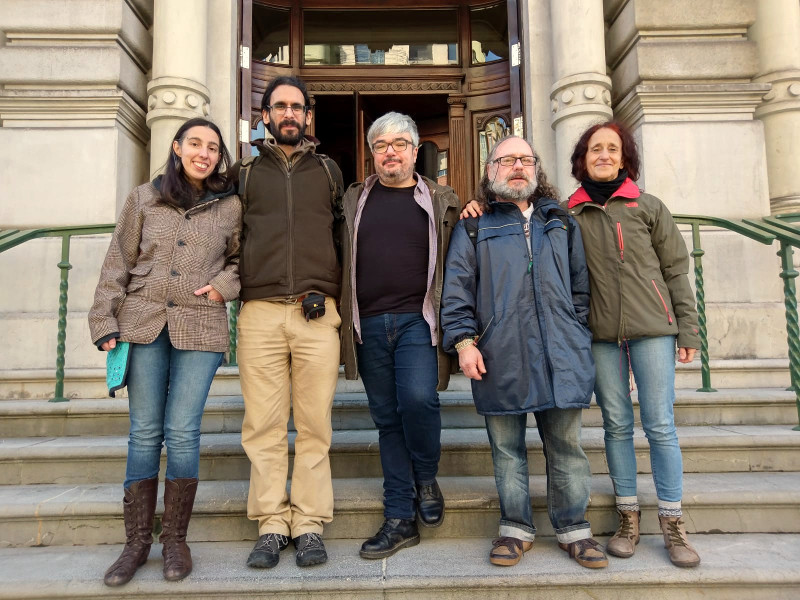
Pica Pica Hacklab team in front of the Parliament of Asturias after the Parliament's decision to support Public Money? Public Code! (Picture by Marcos Suárez,
CC-BY 4.0)
Which party was the first one to be convinced?
The parties that were more closely cooperating from the very beginning and were answering all the emails were Izquierda Unida and Podemos. Very early on, Izquierda Unida said that they were going to vote yes and they told us publicly that they were going to do that. So there was no mystery about their vote. It was different for Ciudadanos, PP and PSOE. I think Ciudadanos, by the end of the meetings, they were probably going to vote yes and they mentioned that they were going to vote yes. So we were quite sure about that, but regarding PSOE and PP we had no idea until the final vote.
Those are the biggest parties, so you needed them or at least one of them to succeed. Since you knew the small parties are going to vote in favour you further concentrated your efforts on the big ones?
Yes, of course. We sent a lot of emails to them before the voting, but they never replied... It was good to get the yes from Izquierda Unida and Podemos. But without the the PP or PSOE we would not have succeeded. And so, on the election day we were all watching the parliamentary session with tension.
And then you were successful, congratulations! Can you briefly explain what it is that the Parliament actually voted on and what it means?
I do not know how to legally translate this proposal. I would say something like non-binding motion or proposal or something like that. So there is the first item, it does not involve the government because it is says: "the Parliament of Asturias supports the European campaign of 'Public Money? Public Code!'". Meanwhile they followed their accepted proposal and are officially listed as signatories of the open letter of the campaign.
Then, the other two items are more related to the government. It basically takes the message from the "Public Money? Public Code!" campaign and although it is not mandatory, it asks the government to use Free Software in public administrations. So it is not a law, it is not binding, but it is an intention.
I think for the first time, a lot of politicians understood what Free Software is.
Is there a legal obligation for the government to reply to it?
I am not a legal expert, but I would say no. I think what was more useful about this is that, I think for the first time, a lot of politicians understood what Free Software is. At least now they know the movement, they know the concept, they know the issues with proprietary software. And our representatives in the parliament are now aware of that.
But also it serves as a very good basis for us. We are not naive and we know that this proposal is not like the last step but more like the first one. But we can use it for the ones that will come next. For example, we are in elections period and our idea is to ask the parties somehow to reflect this motion passed on their proposals for the next government. Then, once we have the new government by the end of next month, we will start working again with the Parliament and remind them of this decision. And if it is not PSOE again who is governing we can directly speak with the governing party and remind them that they agreed on fostering Free Software and ask them what are the things they are going to do regarding points two and three of the proposal. And if they do nothing, we will be there to let them know that we do not forget and we want them to do something about it.
We know that this proposal is not like the last step but more like the first one. But we can use it for the ones that will come next.
Do you think the elections will change something in the current government in Asturias?
To be honest, I do not know which party will win. The current governing party is the only party which voted no. So concerning Free Software any new party is supposed to be better. But we know that it is one thing to vote yes when you are in the opposition and often it is totally different when you are governing and you have to do something about it. So let us wait to see what happens.
We wish you good luck with this and thank you very much for this very interesting interview!
Interviewer: Erik Albers
With our
Public Money? Public Code! campaign, the FSFE demands that publicly financed software developed for the public sector shall be made publicly available under a Free and Open Source Software licence. In order to help understand our call and its benefits, we run a series of interviews that highlight good examples and use-cases as best practices.
Support FSFE
 Picture by Marco Verch, CC-BY 2.0
Picture by Marco Verch, CC-BY 2.0
 Some of the Pica Pica Hacklab members at a regular meetup in 2016. (Picture by Iyán Méndez Veiga,
Some of the Pica Pica Hacklab members at a regular meetup in 2016. (Picture by Iyán Méndez Veiga,  Pica Pica Hacklab team in front of the Parliament of Asturias after the Parliament's decision to support Public Money? Public Code! (Picture by Marcos Suárez,
Pica Pica Hacklab team in front of the Parliament of Asturias after the Parliament's decision to support Public Money? Public Code! (Picture by Marcos Suárez, 